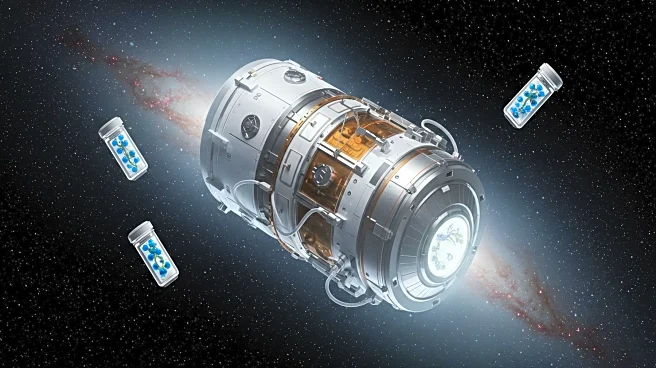What is the story about?
What's Happening?
Russia has launched the Bion-M No. 2 mission, sending 75 mice, 1,500 fruit flies, plants, microorganisms, and lunar dust into space. The mission aims to study the effects of microgravity and cosmic radiation on living organisms, providing insights for future deep-space missions. The biosatellite, launched from Baikonur Cosmodrome, continues Russia's legacy in biological space experiments, building on the 2013 Bion-M No. 1 mission. The mission includes lunar simulants to test reactions to space conditions, contributing to understanding long-term adaptation and recovery mechanisms in organisms.
Why It's Important?
The Bion-M No. 2 mission is crucial for advancing space medicine and biological research, offering valuable data for future human exploration of the Moon and Mars. By studying the effects of space conditions on mice and fruit flies, scientists can develop strategies to protect astronauts from radiation-related health issues. The mission's findings may also have medical applications on Earth, enhancing knowledge of adaptation and recovery processes in living organisms.
What's Next?
The mission will expose samples to space conditions for 30 days, with researchers analyzing the collected data to improve space medicine protocols. The insights gained will inform preparations for human missions beyond Earth, potentially influencing future space exploration strategies and international collaborations in bioscience.
Beyond the Headlines
The mission highlights Russia's commitment to bioscience in space, contributing to global understanding of life beyond Earth. It underscores the importance of international cooperation in space research, as findings from such missions can benefit humanity's quest for knowledge and exploration.















